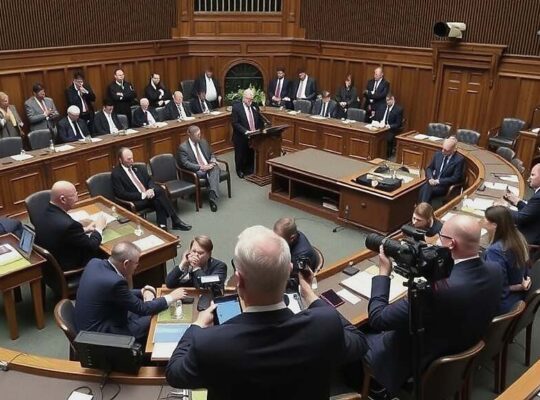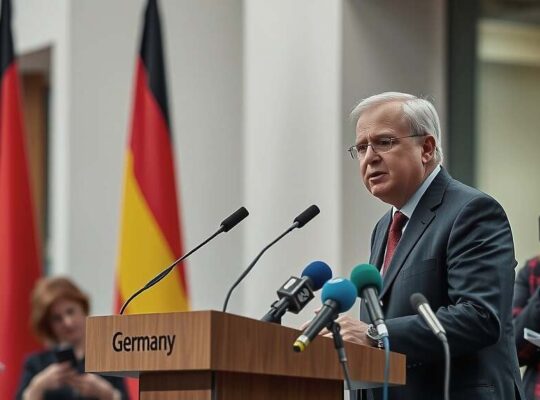The President of Germany’s Federal Audit Court, Kay Scheller, has launched a stark warning regarding planned staffing cuts within his institution, raising significant concerns about the nation’s oversight of government spending and raising questions about the priorities of the current fiscal consolidation efforts. In a letter to members of the Bundestag’s budget committee, obtained by “Der Spiegel”, Scheller details how the proposed cuts would severely compromise the court’s ability to fulfill its mandate, potentially leading to the complete loss of a dedicated audit division by 2027.
The warning arrives amid a broader government initiative to consolidate the federal budget, a directive originating from the Federal Ministry of Finance that mandates reductions in personnel across various government agencies. Intriguingly, internal Bundestag documents reveal that a prior draft of the 2026 budget initially excluded the Federal Audit Court, alongside several other vital authorities, from the planned personnel cuts. This exemption, according to Scheller, was predicated on the ministry’s recognition of already achieved savings in previous years – a commitment he claims was conveyed to him in writing by the state secretary responsible for the budget.
Scheller’s concerns are particularly acute given the escalating volume of federal spending, especially exacerbated by special-purpose funds and supplementary budget allocations. Simultaneously, the court faces increasingly complex challenges in areas including defense projects, IT security, social security systems and crucial infrastructure developments – the very areas requiring the most rigorous scrutiny. The prospect of losing a complete audit division, while significant budget expansion continues, represents a potentially crippling blow to the court’s effectiveness.
The Federal Audit Court is not alone in facing this shift. The Robert Koch Institute, a public health research institution under the Ministry of Health and the Independent Control Council – tasked with ensuring the Federal Intelligence Service adheres to legal parameters in its foreign surveillance activities – are also slated to lose their exemption from the personnel cuts. Notably, security agencies such as the Federal Criminal Police Office, the Federal Police and the Ministry of Defense remain exempt, highlighting a perceived prioritization of specific government functions over independent oversight.
Opposition lawmakers have sharply criticized the planned reduction. Leon Eckert, a Green Party budget policy expert, told “Der Spiegel” that the scale of budgetary expansion requires an intensification of scrutiny, rather than a weakening of control mechanisms. He further voiced concerns that the blanket personnel cuts are being exploited to undermine governmental transparency and accountability. The situation has sparked a political debate surrounding the balance between fiscal austerity and the maintenance of essential oversight functions within the German government.












